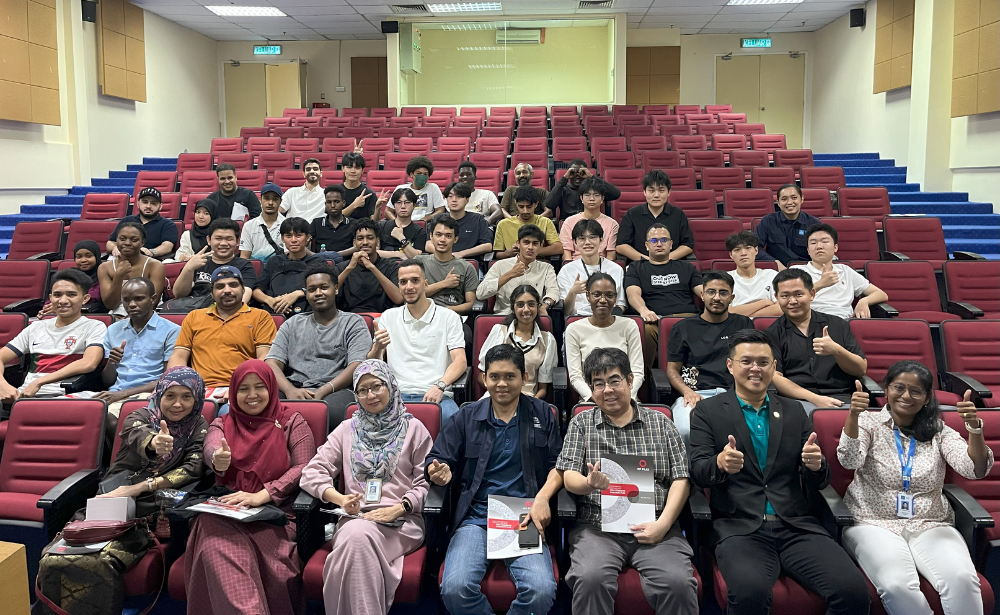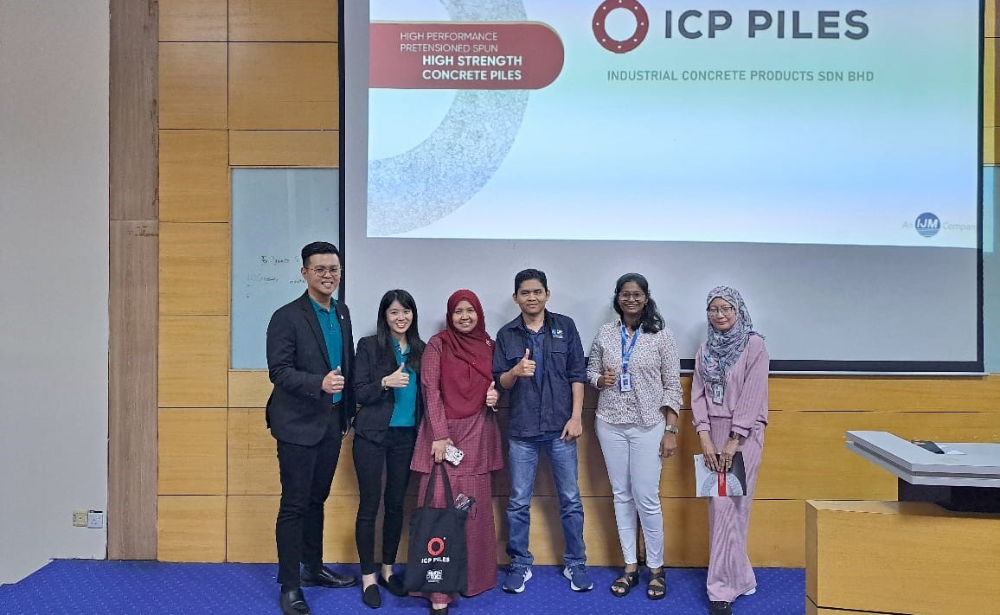世纪大学工程,建筑环境与资讯科技系(FOEBEIT)最近举办了一场由Priyadatchini Karunakaran博士主讲的论坛,主题为 "Spun Piles for Sustainable Infrastructure Development"。此次活动汇集了一至四年级的工程专业学生和教职员工,就可持续发展实践在建筑中的重要性进行了深入探讨。

该论坛邀请了在 ICP 销售和技术服务领域拥有十多年经验的行业专家 Westley Tay Wei Quan 出席,他就如何在可持续基础设施中使用旋喷桩提出了宝贵的见解,并鼓励学生认真思考他们未来在工程领域促进可持续发展的角色。
Westley Tay 毕业于马来西亚工艺大学土木工程专业,他分享了自己在大型项目中的专业知识和经验,包括马来西亚炼油和石化综合开发项目(RAPID)和新加坡建屋发展局(HDB)项目。他的演讲深入探讨了可持续基础设施的实际应用和挑战,强调了这些实践如何推动建筑业的未来发展。论坛为学生们提供了一个充满活力的平台,让他们探索和讨论当前的可持续发展实践以及旋喷桩技术的新兴趋势,旋喷桩技术在减少对环境的影响方面发挥了重要作用。
该倡议有三个主要目标:提高对可持续实践的认识,让学生参与积极讨论,并激励他们在未来的职业生涯中接受可持续发展。通过互动环节,学生们深入了解了可持续基础设施解决方案如何与全球优先事项保持一致,特别是联合国可持续发展目标(SDGs),该目标旨在建设具有抗灾能力和可持续发展的城市。论坛还起到了激励作用,学生们聆听了现实世界中的成功故事,并思考如何在工作中实施可持续解决方案。
随着全球对可持续建筑的认识不断提高,这样的论坛至关重要。仅在 2021 年,建筑业就排放了约 38% 的全球能源相关二氧化碳。培养未来的工程师具备减少这些影响的技能与动力是至关重要的。世纪致力于工程教育的可持续发展,确保学生们有能力为更可持续的建筑环境做出有意义的贡献,满足建筑业对环保实践的需求。
该倡议与联合国可持续发展目标(SDGs)相一致,特别是
- 可持续发展目标 9:工业、创新和基础设施
- 可持续发展目标 11:可持续的城市和社区
- 可持续发展目标 12:负责任的消费和生产

